Chamaerops humilis ‘Vulcano’
Dwarf Mediterranean Fan Palm
From: £30.95
The Dwarf Mediterranean Fan Palm is a particularly compact clustering palm, with distinctive, huge green leaves which grow spread out in a very attractive fan form.
Chamaerops humilis ‘Vulcano’ is tolerant of drought once established, suited to sun or part shade, a cold garden or hot conservatory, exposed gardens or balcony planters – even as hardy palms go this one is remarkably easy to look after and grow.
FREE DELIVERY FOR ONLINE ORDERS*
*(parcel orders over £60.00 and pallet deliveries over £350.00)
Order today for shipping on Thursday 23rd May.
Plant Biography
A Sicilian cultivar of Chamaerops humilis, the northernmost naturally occurring palm in the world.
Chamaerops humilis is the only species in the genus Chamaerops, though the genus is closely related to the Asian genus Trachycarpus, differing in the spined petioles, and its multi-stemmed clustering habit.
The Dwarf Mediterranean Fan Palm is a beautiful specimen plant for any garden. Unpruned it grows into an attractive shrubby form. If pruned, it will grow into a single trunk tree form. This palm works perfectly to add an accent to the border of the garden, or particularly well in a container for a patio or deck.
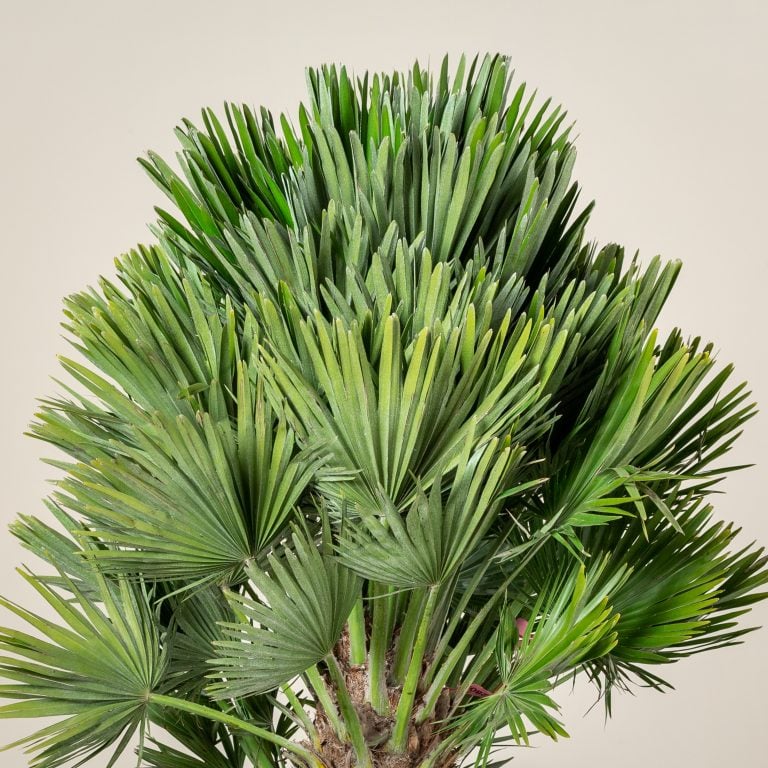
Expert Tip
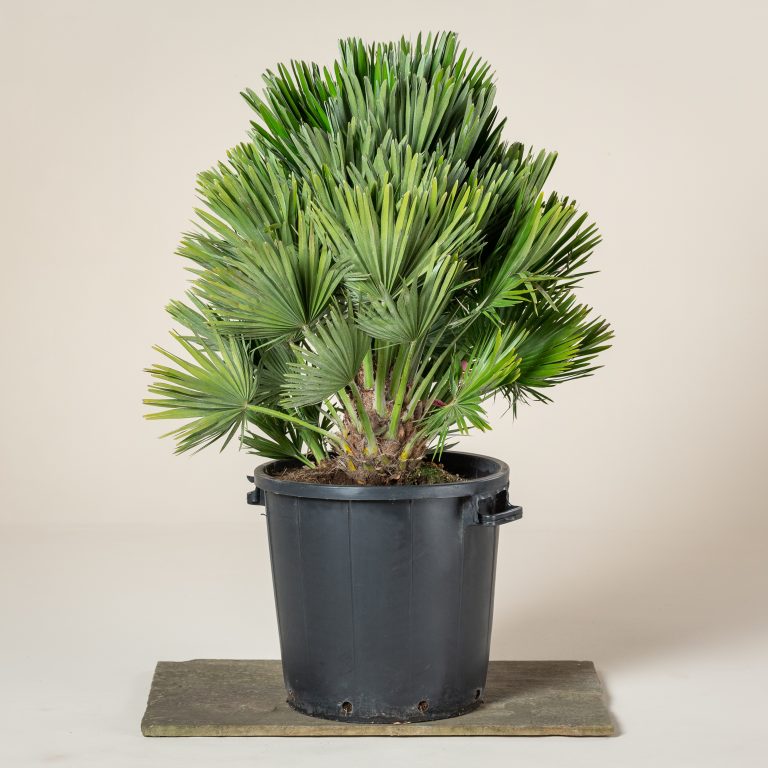
'Vulcano' Cultivar
The Vulcano cultivar of Chamaerops humilis is a particularly small and compact form, only growing to a maximum height of 2 metres. The fronds also appear stiffer than its sister species, with flashes of silver on the undersides.
It is said that this cultivar was discovered growing wild on the island of Vulcano, just off the coast of Siciliy.
Its small nature makes it particularly suitable for container growing.
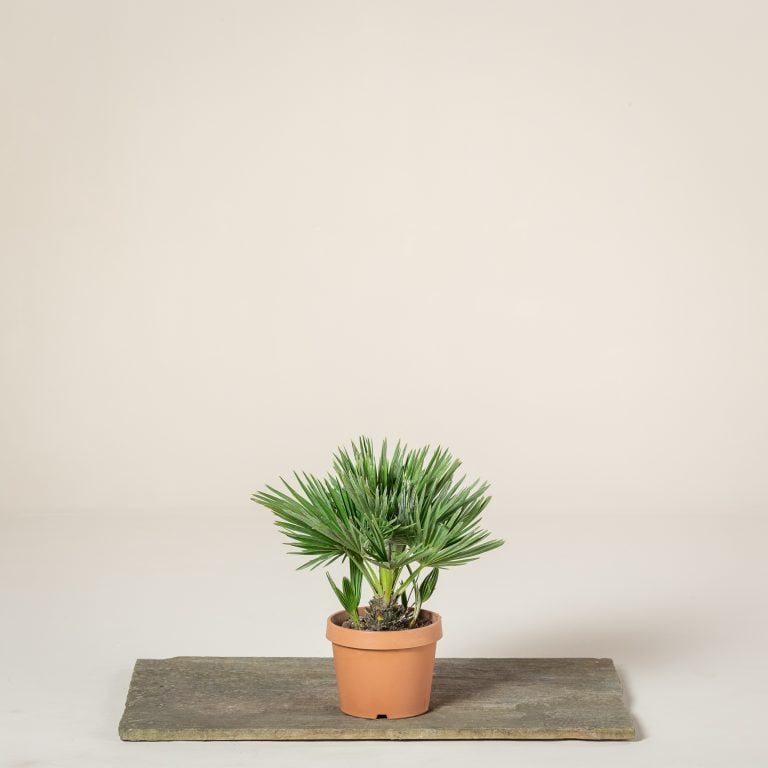
Care & Size Guidance
Chamaerops humilis ‘Vulcano’ has better winter hardiness than most other palms, tolerating brief dips to -6 to -9C. If grown in a colder area, it can be kept in a container to bring indoors when necessary, so long as it’s in a bright, sunny spot.
It prefers a bright and sunny location, but will tolerate part shade. However, if it’s grown in too much shade it will lose its compact form.
Read more about hardy palms
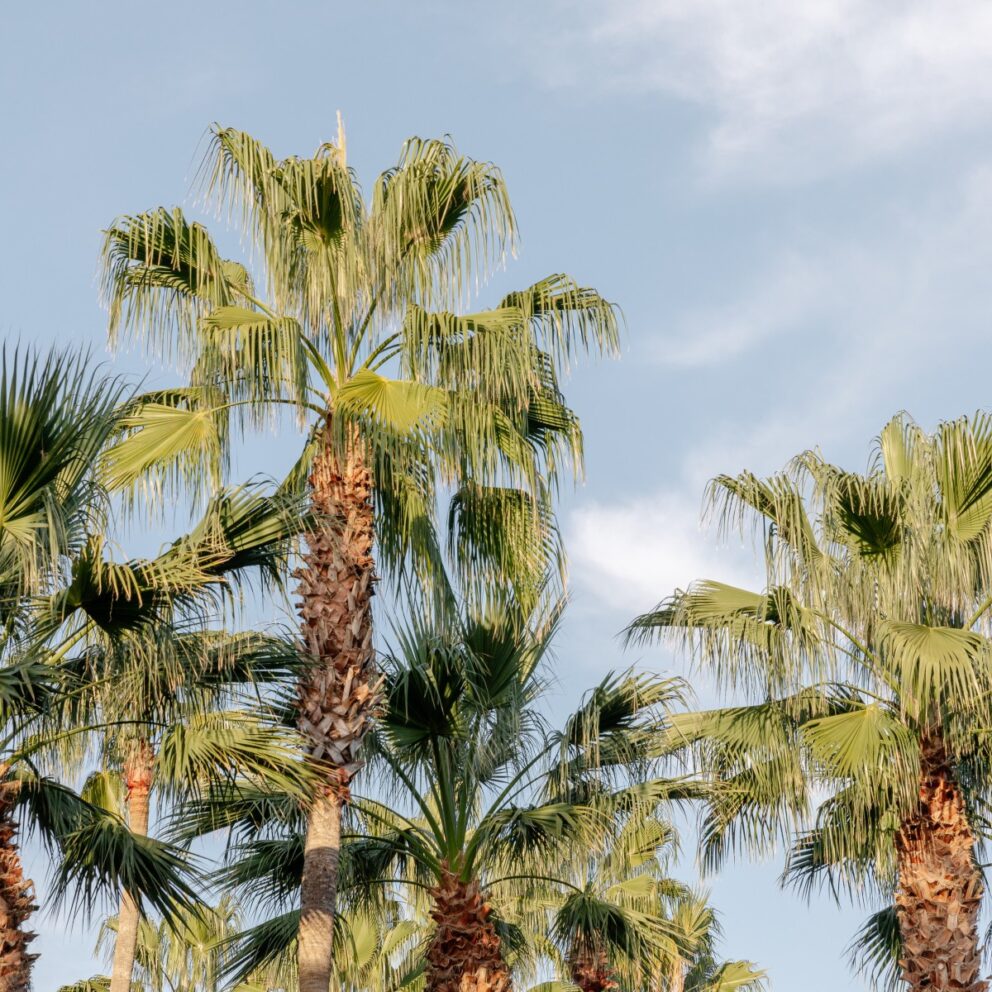
Essential FAQ Garden Palm Trees
All the important questions you’ve always wanted to ask are here answered for you by experts.
Read article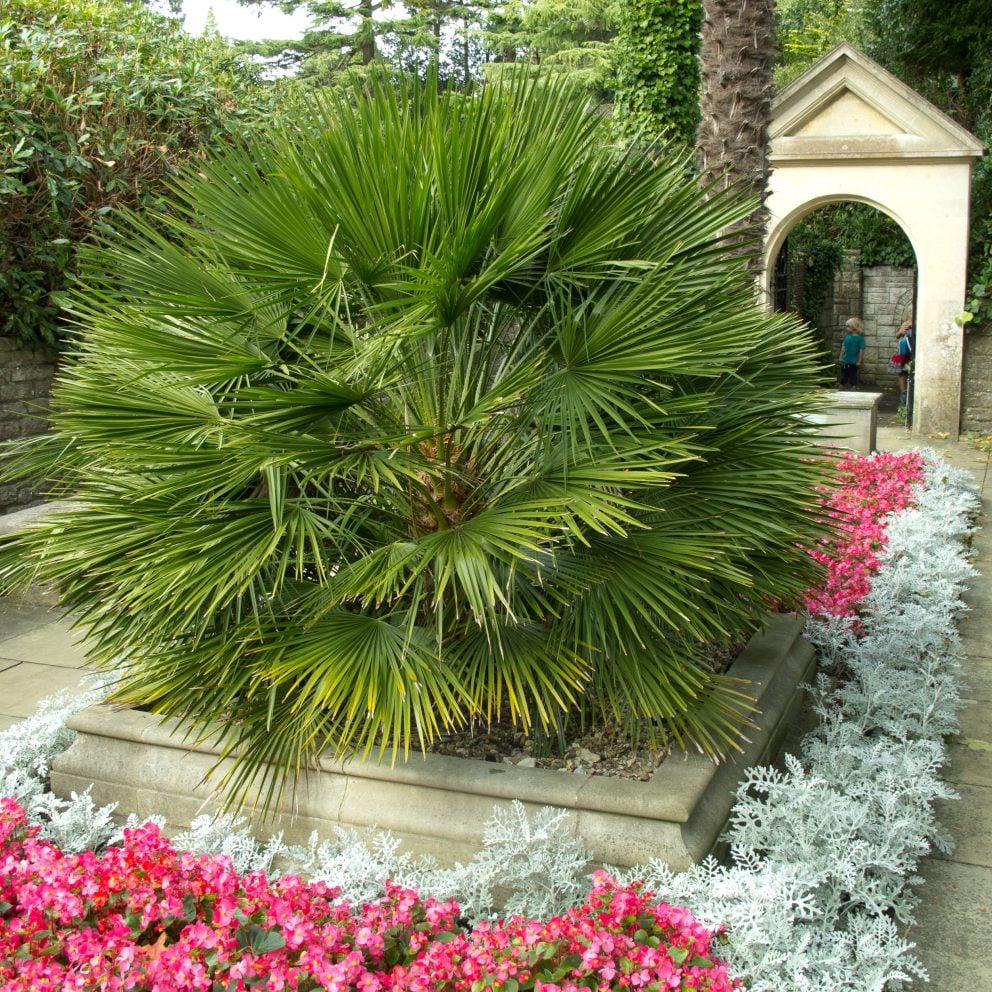
Top Five Hardy Palms for the UK
If you’ve just discovered the wonderful world of hardy exotic gardening then you might be wondering what palm trees you can grow in the UK climate. Here’s our list of the top five that we recommend.
Read article
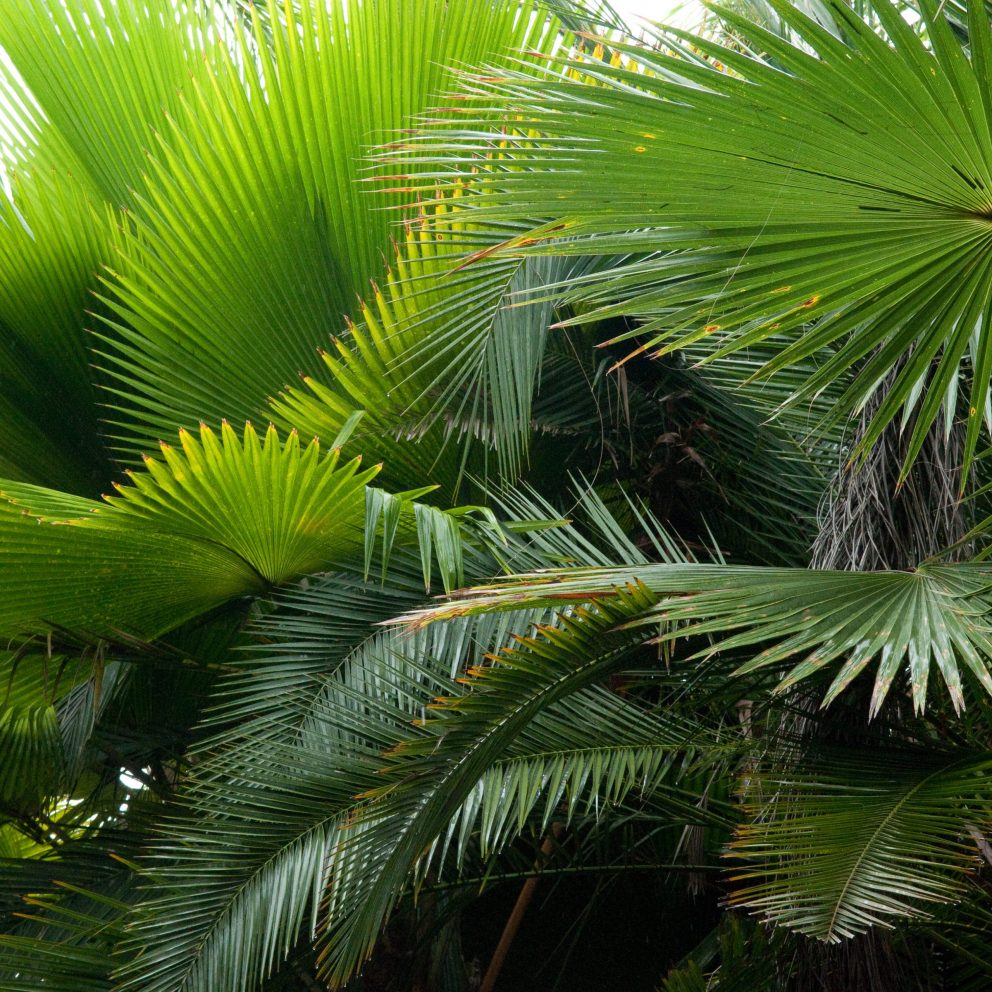
Palm Perfection 101: How to look after your garden palm trees
Most palms need tropical or subtropical temperatures, but there are some suitable for planting outdoors in the British Isles.
Hardy palms are invaluable as structural plants in tropical-style gardens and look effective when planted with bananas, bamboos and New Zealand flax.
Read article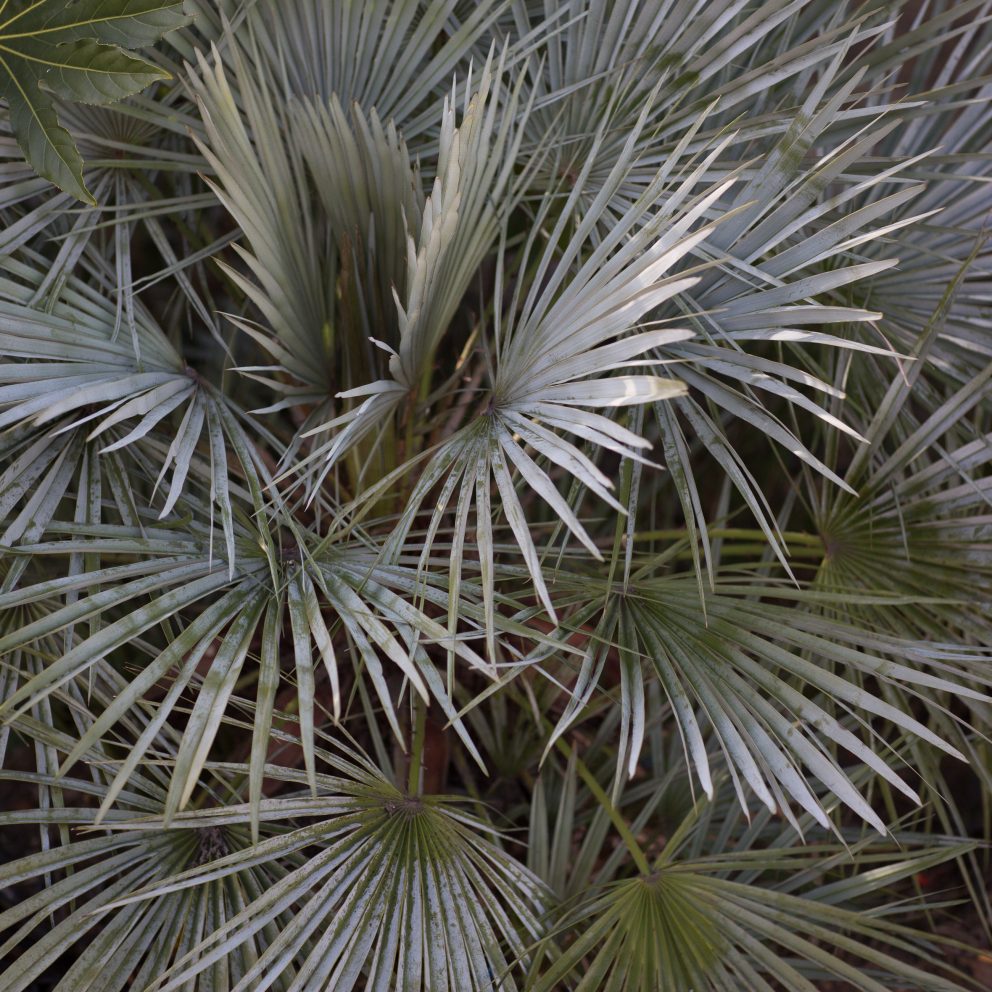
How to treat cold-damaged palms in the UK
When it comes to cold damaged palms, the old adage is true: prevention is better than cure! If at all possible, protect palms from freezing temperatures in the first place with horticultural fleece. That said, if you have a palm that has suffered with cold damage, keep reading to find out what you can do to give it the best chance of recovery and survival.
Read article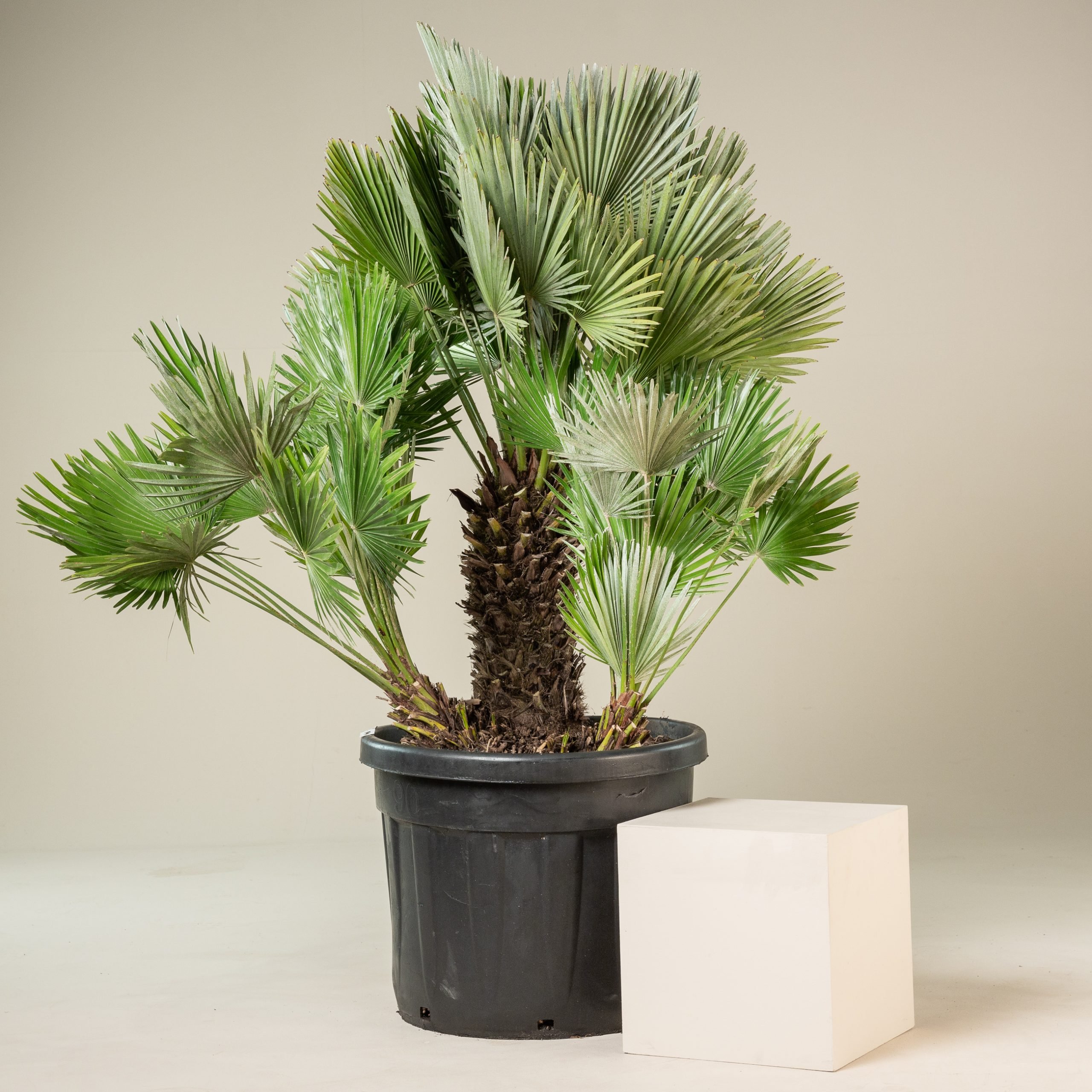
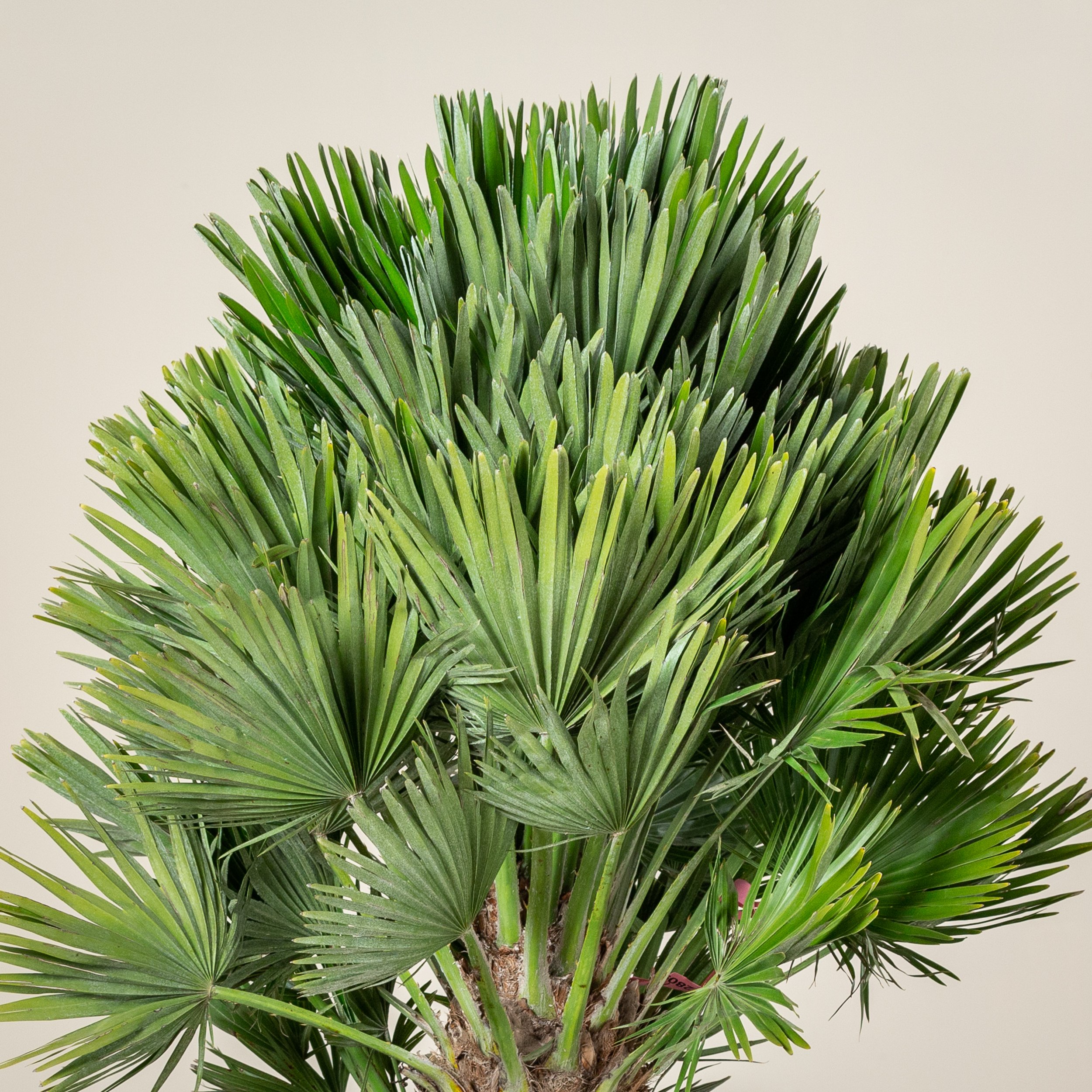

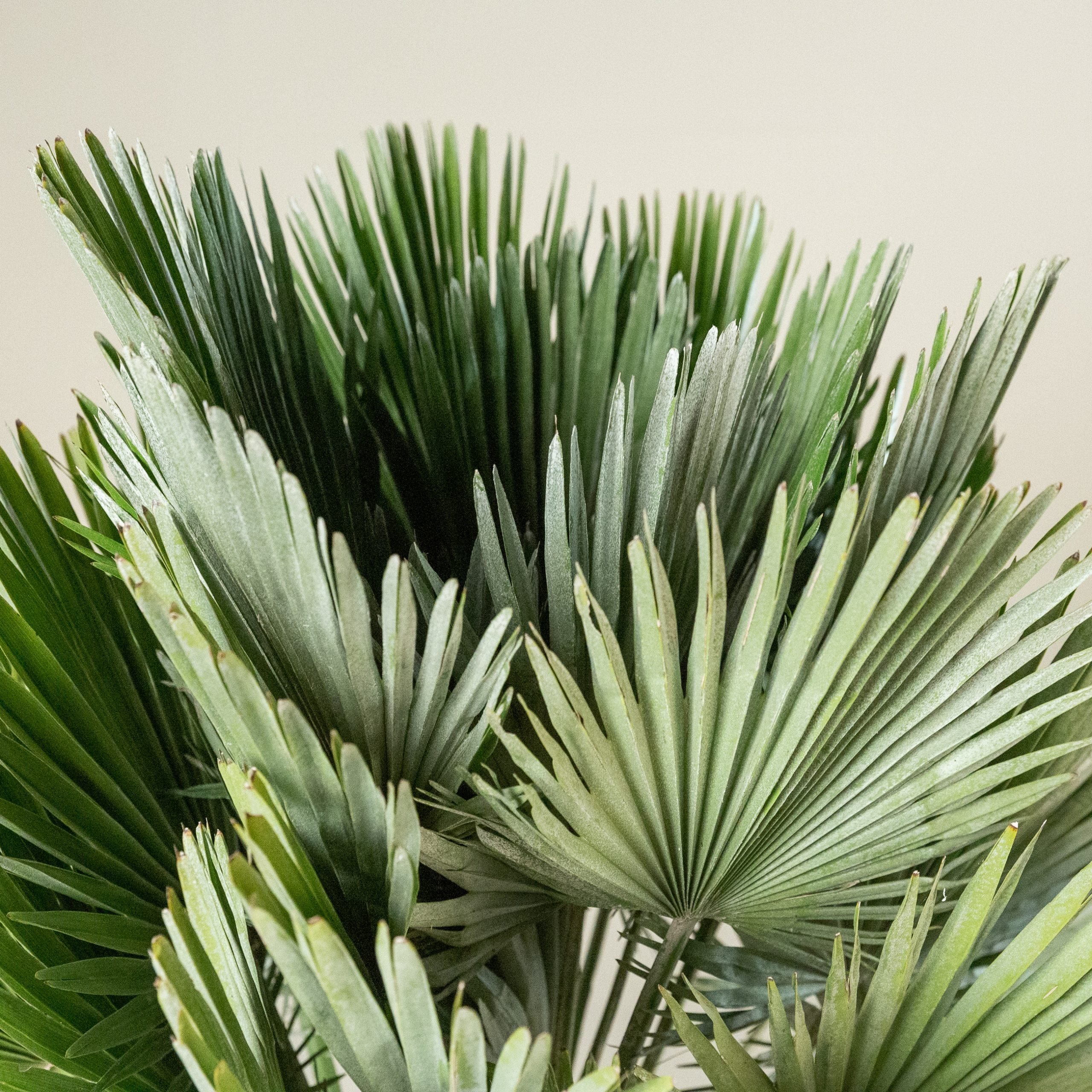
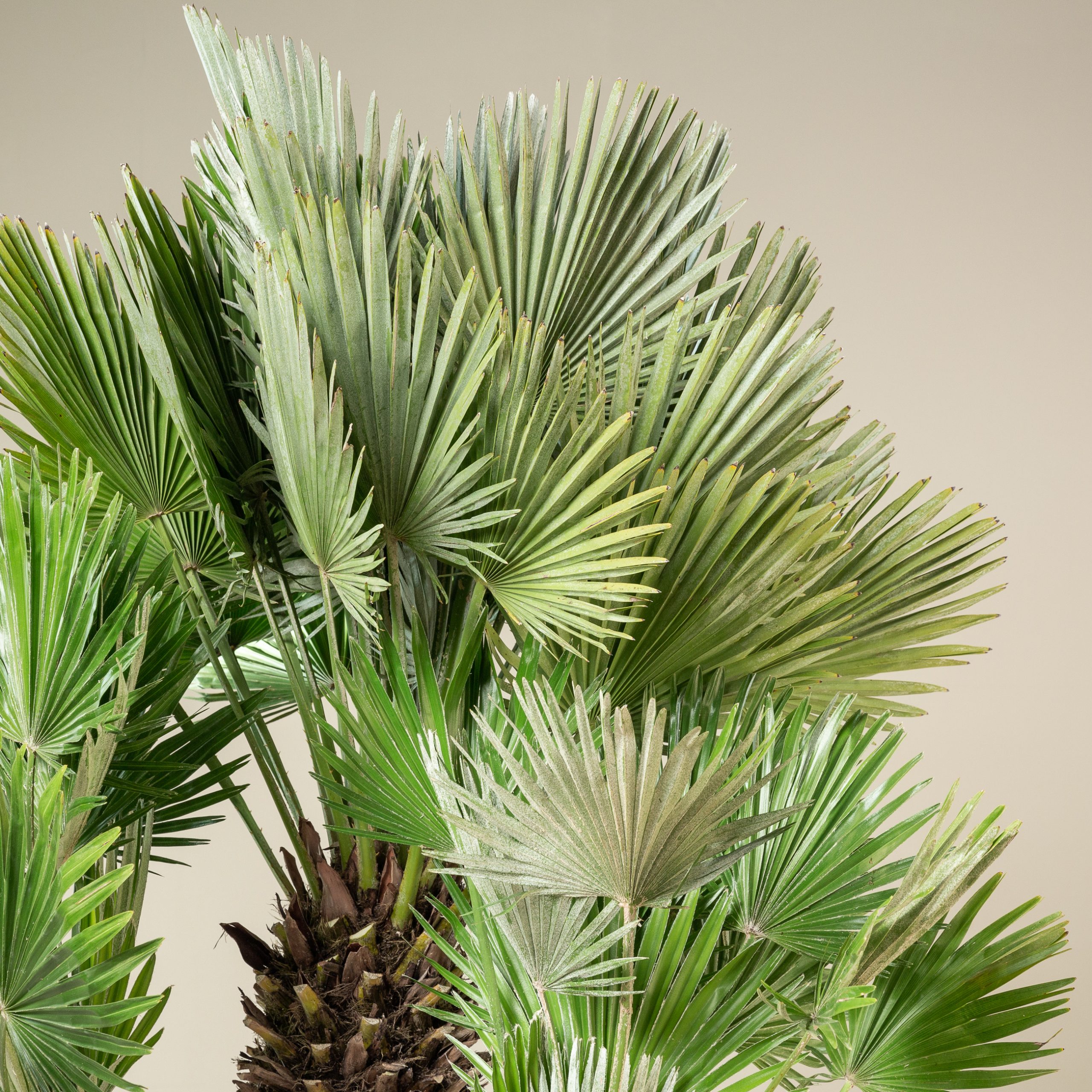
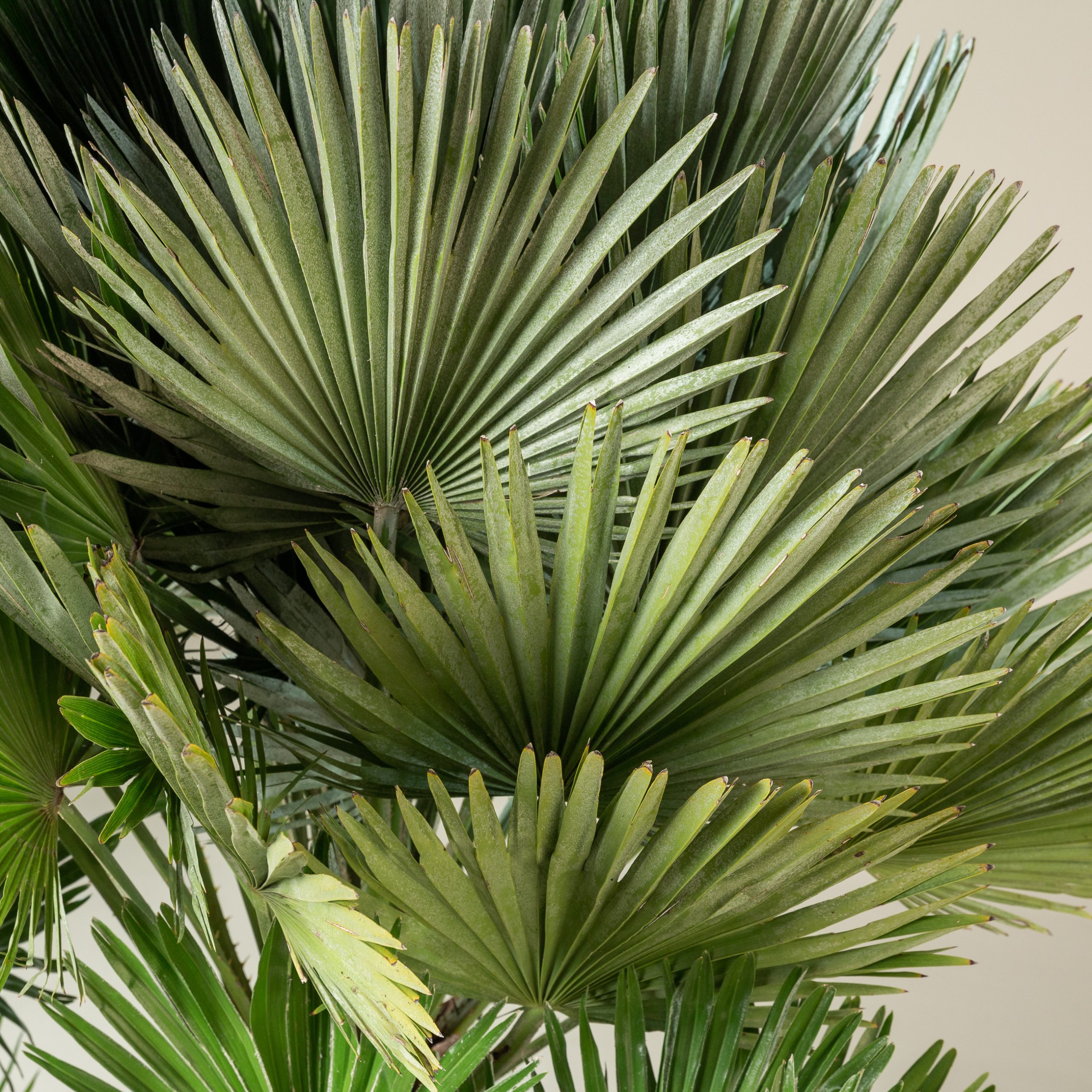
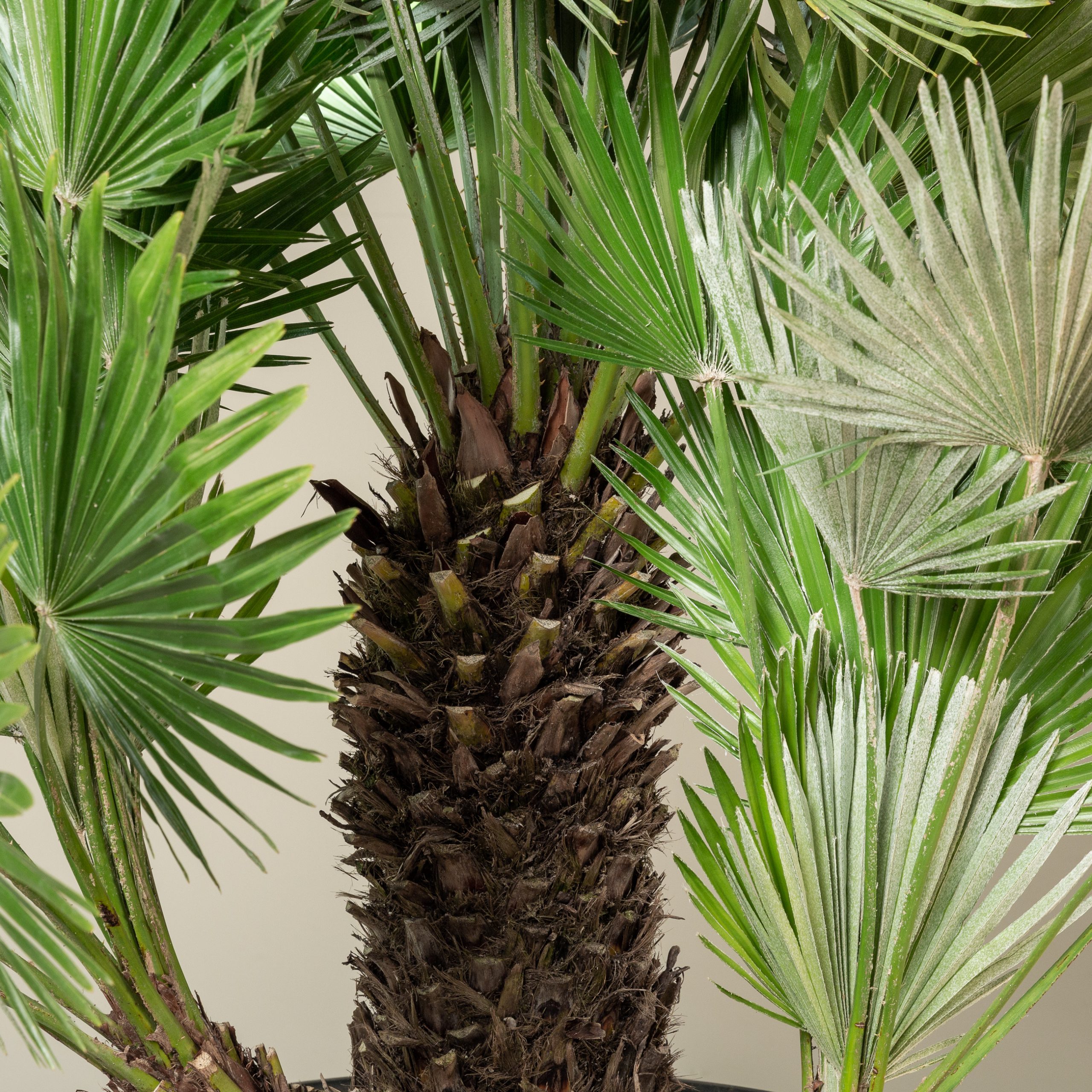
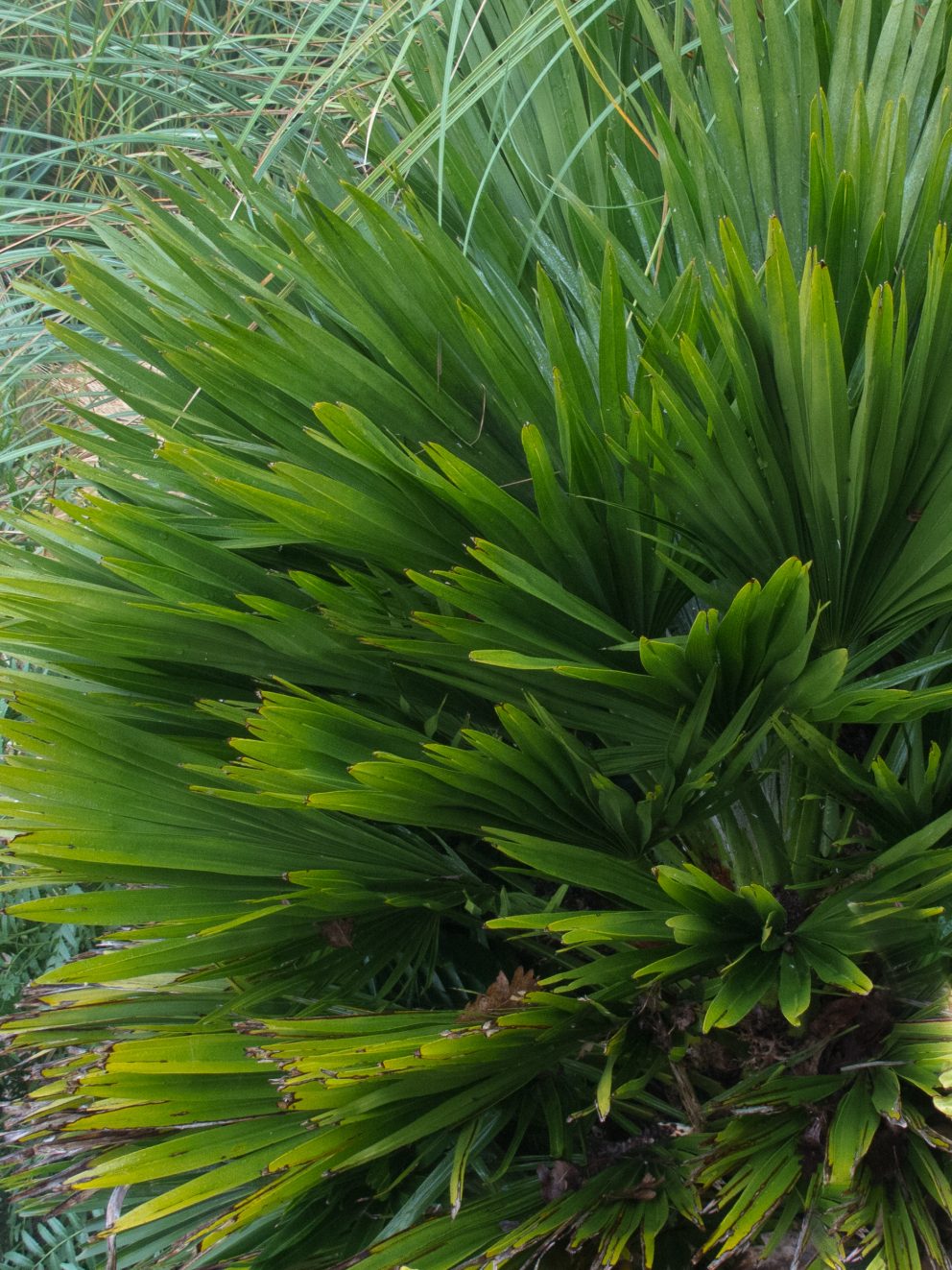

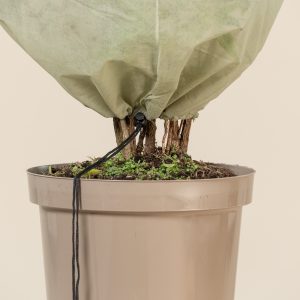
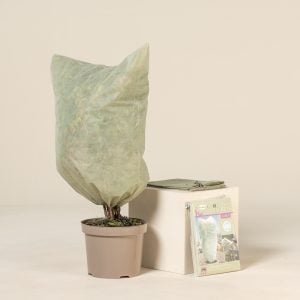
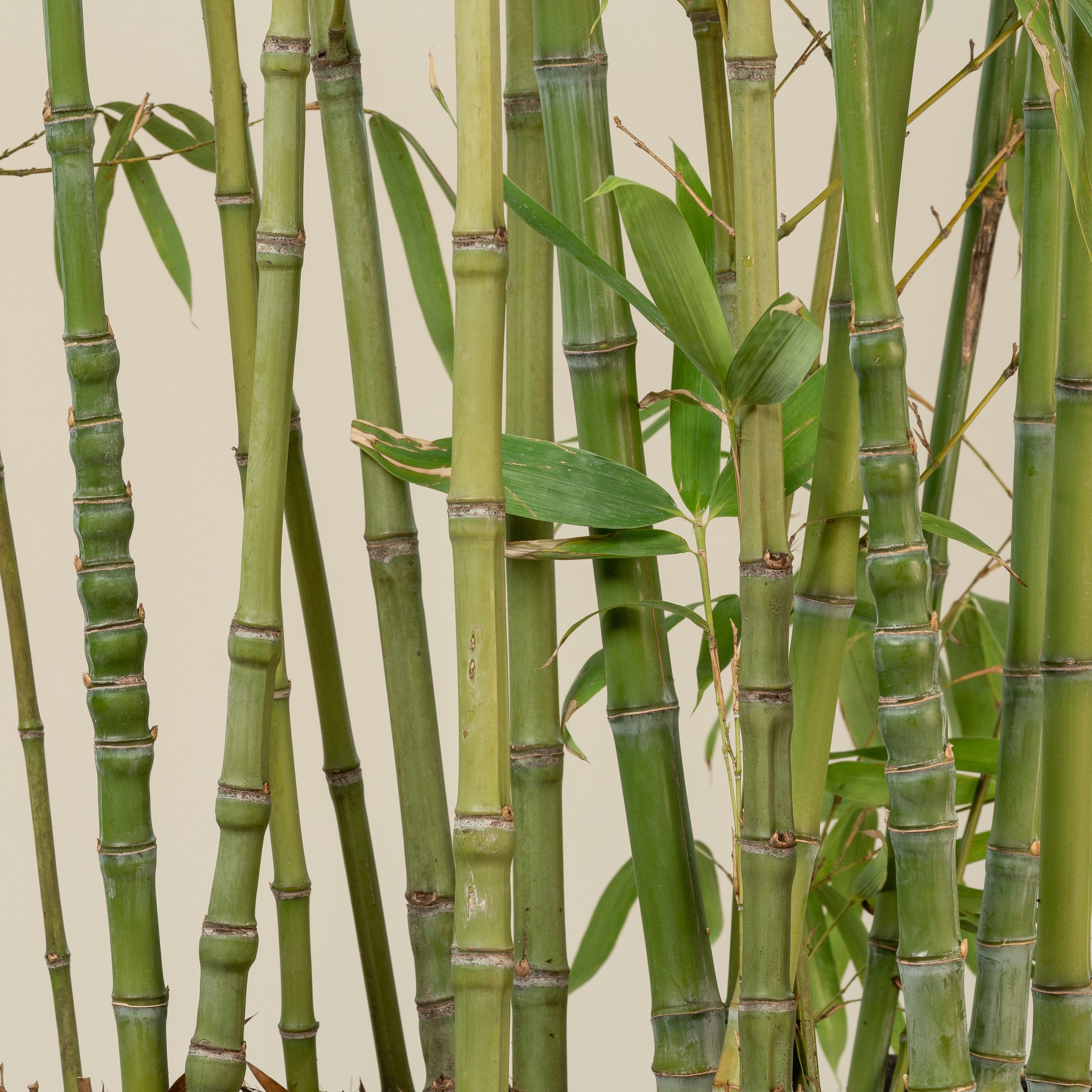
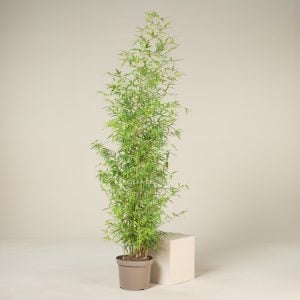


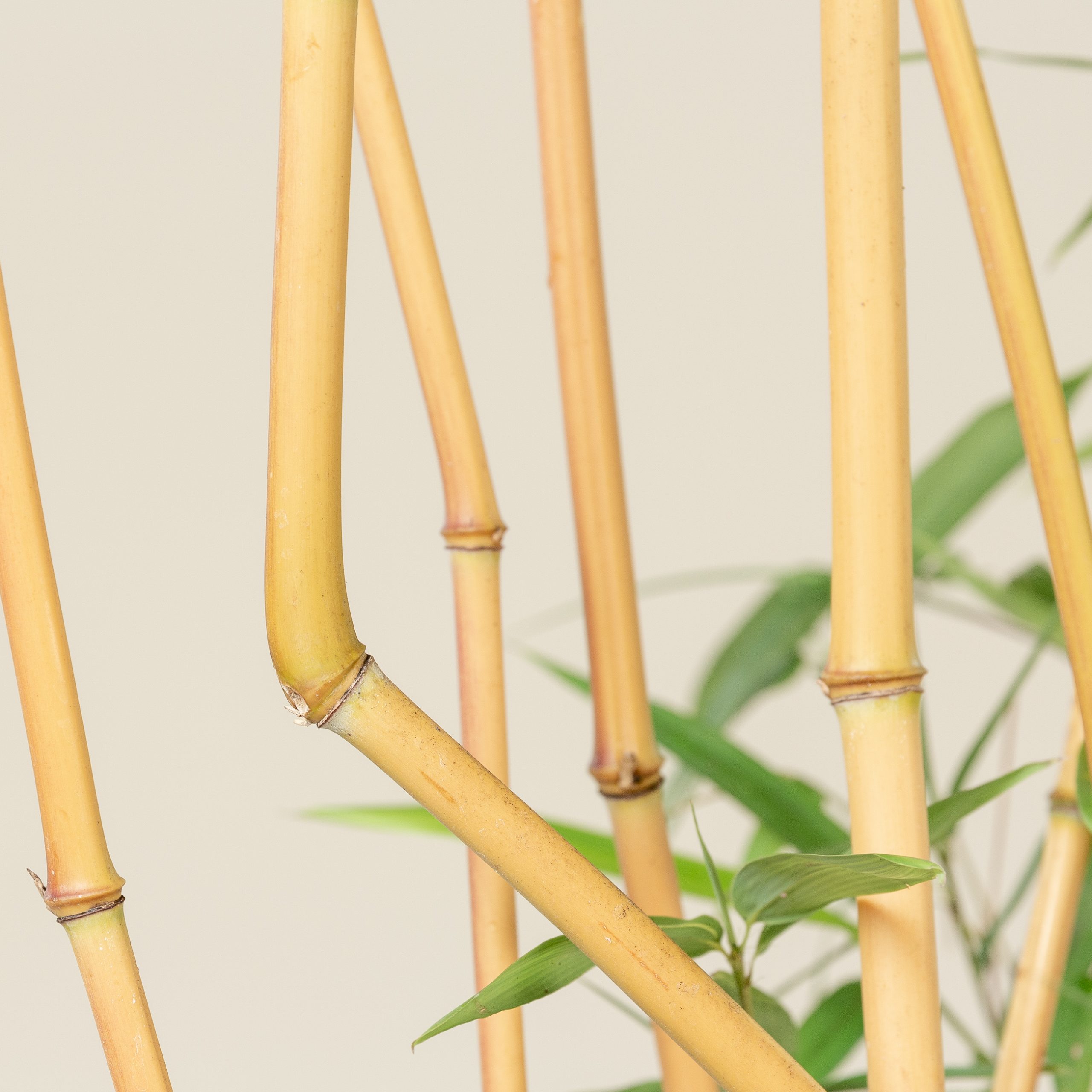
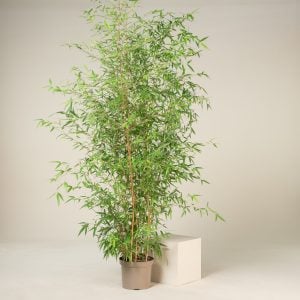
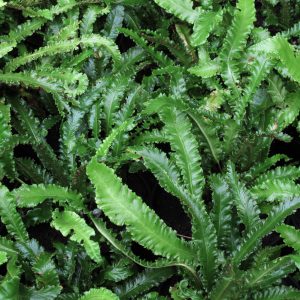

The plant arrived very well packaged and is a beautiful and healthy specimen. However the delivery company did not enable me to track the package and I had no idea that it had arrived until a neighbour informed me. Nil points to APC!
Susan Colquhoun (verified owner) –
Lovely little specimen, superb packaging and arrived in perfect condition.
Roger C. (verified owner) –
Ordered the 90l and received a 50l. Now been arranged for a return. And the correct plant is being sent. Disgusted as it was a wedding anniversary present for my wife. How can someone not tell the difference between a 50l and 90l pot. Probably someone who knows nothing about plants, and it looks like palm centre have those type working for them. Used to be centre of excellence and is now like a b&q at best. Look for other suppliers if I was you.
Richard C. (verified owner) –
This is the second order from The Palm Centre. You cannot have enough palms if you have the room. All aspects of the purchase and delivery were excellent and the palms are beautiful. They are in my kitchen just waiting for some better weather and avoiding this late frost. I loved the information tag which accompanied the palms and to be able to trace their origins from Mt. Etna. Many thanks to The Palm Centre.
Elizabeth L. –